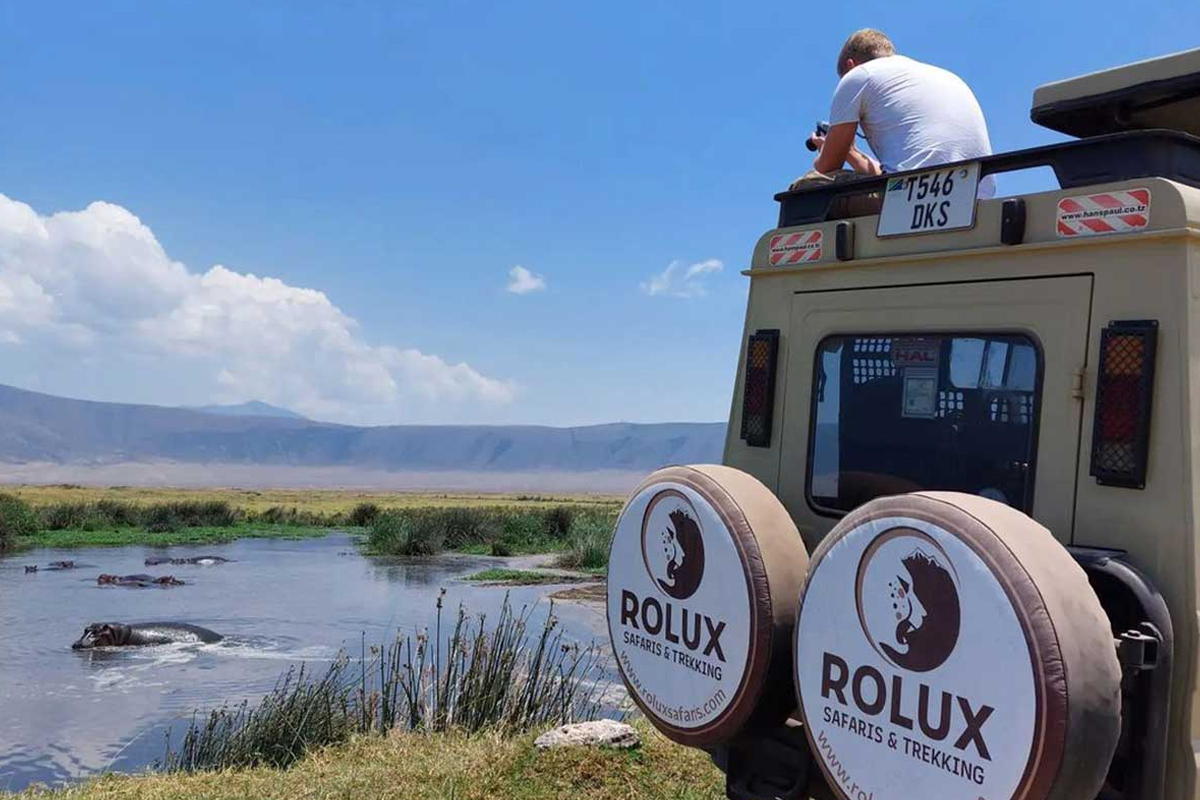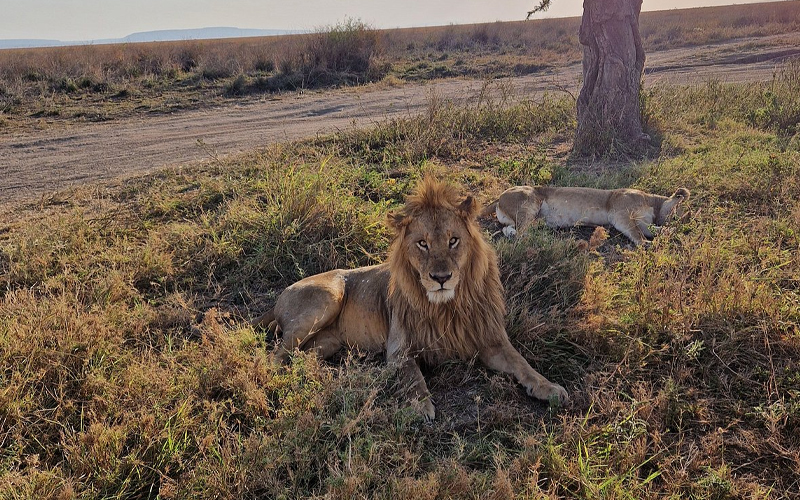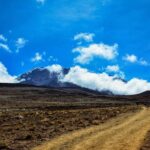Tanzania Safari Industry Global Economic Impact 2024
Tanzania’s safari industry has long been a cornerstone of the country’s economy, attracting thousands of tourists each year who come to experience its breathtaking landscapes, abundant wildlife, and iconic destinations like Serengeti National Park and Ngorongoro Crater. However, in 2024, the global economic landscape is shifting, and these changes are having a significant impact on Tanzania’s safari sector. From inflation and rising travel costs to evolving consumer preferences, global economic trends are reshaping how Tanzania’s safari industry operates and what it offers to travelers.
Global Economic Trends Influencing Tanzania’s Safari Industry
1. Inflation and Rising Travel Costs
One of the most significant economic trends affecting the safari industry in 2024 is global inflation. Many countries around the world are facing rising costs of goods and services, driven by supply chain disruptions, fluctuating fuel prices, and geopolitical tensions. This inflationary pressure has had a direct impact on the cost of travel, particularly long-haul trips like those to Tanzania.
- Impact on Safari Pricing: The safari industry, which relies heavily on international tourism, is feeling the strain as the cost of flights, accommodation, and safari experiences rises. Fuel prices, in particular, have driven up the cost of operating safari vehicles, charter planes, and supply logistics for remote lodges and camps. As a result, safari operators have had to increase prices to cover their rising operational costs, making safaris more expensive for tourists.
For budget-conscious travelers, this increase in prices may lead to a reduction in demand, especially for luxury safaris. However, Tanzania’s safari operators are responding by offering more diverse packages, including mid-range and budget options, to cater to a wider range of travelers.
2. Currency Fluctuations
Currency exchange rates are another important factor influencing Tanzania’s safari industry. As global currencies fluctuate, particularly the US dollar, euro, and British pound, the cost of safaris can vary for international tourists. In 2024, the strength of the US dollar has provided some stability for American travelers, but fluctuations in the euro and pound have impacted the affordability of safaris for European visitors.
- Effect on Tourism Numbers: When foreign currencies weaken against the Tanzanian shilling, travelers from those regions may find safaris more expensive, leading to a potential decline in bookings. Conversely, tourists from countries with strong currencies may find Tanzania’s safari packages more affordable, driving an increase in visitors from those regions.
To navigate these currency fluctuations, safari operators are offering more flexible payment options and promoting early booking discounts, allowing travelers to lock in prices and avoid sudden price hikes.
3. Geopolitical Tensions and Travel Restrictions
In 2024, ongoing geopolitical tensions in various parts of the world are also influencing global travel patterns. Political instability, conflicts, and regional tensions have led to changes in how tourists choose their travel destinations, with safety and stability becoming increasingly important considerations.
- Shifts in Safari Markets: For Tanzania’s safari industry, geopolitical uncertainty in key tourist source markets—such as Europe, North America, and parts of Asia—can lead to fluctuations in visitor numbers. Tourists may choose to delay or cancel trips due to concerns about safety or travel restrictions, which can affect Tanzania’s safari businesses.
However, Tanzania itself remains a stable and peaceful destination, making it an attractive option for tourists looking to avoid regions experiencing political instability. As a result, Tanzania has the opportunity to position itself as a safe and reliable destination for nature and wildlife enthusiasts, particularly those seeking to escape the uncertainties of their home countries.
4. Sustainable Tourism Trends
In recent years, there has been a growing global emphasis on sustainability, and this trend will have a profound impact on Tanzania’s safari industry in 2024. Tourists are increasingly seeking eco-friendly and socially responsible travel experiences, placing pressure on safari operators to adopt sustainable practices that minimize their environmental impact and support local communities.
- Eco-Friendly Safari Options: Tanzania’s safari operators are responding to this demand by offering more eco-friendly safari packages. Many lodges and camps have adopted solar power, implemented water conservation measures, and introduced waste-reduction programs. Additionally, some operators are promoting low-impact safari activities, such as walking safaris and community-based tourism initiatives, which offer more sustainable alternatives to traditional game drives.
For tourists, these sustainable safari options provide an opportunity to enjoy Tanzania’s wildlife while contributing to conservation efforts and supporting local livelihoods. The focus on sustainability also attracts a new demographic of environmentally conscious travelers who prioritize responsible tourism.
5. Digital Transformation in Travel
The rise of digital technologies is another major trend shaping the global travel industry in 2024, and Tanzania’s safari sector is no exception. From online booking platforms to digital marketing strategies, the use of technology is transforming how tourists plan and book their safaris.
- Impact on Safari Bookings: More travelers are using online platforms to research and book their safari experiences, with digital travel agencies, review websites, and social media playing key roles in influencing consumer decisions. Safari operators in Tanzania are leveraging digital marketing to reach a global audience, showcasing their offerings through stunning visuals and testimonials from past visitors.
In addition, digital payments and mobile money services have made it easier for tourists to pay for safari packages, especially in regions where traditional banking infrastructure may be limited. This digital transformation is streamlining the booking process, making it more convenient for tourists to plan their trips to Tanzania.
How Tanzania’s Safari Industry Is Adapting to Global Economic Trends
1. Offering Flexible Safari Packages
In response to rising travel costs and inflation, Tanzania’s safari operators are offering more flexible pricing models. This includes tiered safari packages that cater to different budgets, from luxury all-inclusive safaris to more affordable options for mid-range and budget travelers. By diversifying their offerings, operators are able to attract a broader range of visitors, ensuring that the safari experience remains accessible despite global economic challenges.
2. Promoting Domestic Tourism
With international travel becoming more expensive for some, Tanzania’s safari industry is increasingly focusing on promoting domestic tourism. By encouraging Tanzanians and residents of neighboring countries to explore their own natural heritage, safari operators can reduce their reliance on international tourists and create a more resilient tourism market.
Domestic tourism campaigns have been launched, offering special rates for local residents and showcasing the beauty of Tanzania’s national parks and wildlife. This strategy not only helps sustain the industry during periods of global economic uncertainty but also fosters a greater appreciation for conservation among local communities.
3. Embracing Sustainable Practices
As global demand for eco-friendly travel grows, Tanzania’s safari industry is increasingly embracing sustainable tourism practices. Many safari lodges and camps have implemented green initiatives, such as reducing plastic waste, conserving energy, and supporting local conservation projects. Safari operators are also working closely with local communities to ensure that tourism benefits the people who live near national parks and wildlife reserves.
By adopting sustainable practices, Tanzania’s safari industry is positioning itself as a leader in responsible tourism, appealing to environmentally conscious travelers who want to make a positive impact during their trips.
4. Digital Innovation and Marketing
To stay competitive in the digital age, Tanzania’s safari operators are investing in technology to enhance the visitor experience. Online booking platforms, virtual tours, and social media campaigns are helping safari companies reach a wider audience and simplify the booking process. Digital tools also allow operators to offer personalized safari experiences, catering to the specific interests and preferences of individual travelers.
In addition, virtual reality (VR) and augmented reality (AR) technologies are beginning to play a role in marketing safaris, allowing potential visitors to explore Tanzania’s wildlife and landscapes from the comfort of their homes before committing to a trip.
The Outlook for Tanzania’s Safari Industry in 2024
Despite the challenges posed by global economic trends, Tanzania’s safari industry remains resilient and adaptable. While rising costs and geopolitical uncertainties may affect the number of international tourists, the industry is well-positioned to thrive by embracing sustainable practices, promoting domestic tourism, and leveraging digital innovation.
As more travelers seek meaningful and eco-conscious travel experiences, Tanzania’s unique combination of world-class wildlife, stunning landscapes, and commitment to conservation will continue to attract visitors from around the globe. By staying flexible and responsive to changing economic conditions, Tanzania’s safari industry can maintain its status as one of the top wildlife tourism destinations in the world.
In 2024, global economic trends such as inflation, currency fluctuations, and sustainable tourism demands are reshaping Tanzania’s safari industry. While rising costs and travel restrictions present challenges, Tanzania’s safari operators are adapting by offering more flexible packages, embracing eco-friendly practices, and leveraging digital tools to enhance the visitor experience. By focusing on sustainability and diversification, Tanzania’s safari industry remains well-equipped to navigate the shifting global landscape and continue offering unforgettable wildlife experiences.
FAQs
- How has inflation affected safari prices in Tanzania in 2024?
Inflation has led to rising operational costs for safari operators, resulting in higher prices for safari packages. However, operators are offering more flexible and budget-friendly options to accommodate different travelers. - Are currency fluctuations impacting safari tourism in Tanzania?
Yes, fluctuations in currencies like the US dollar, euro, and British pound affect the affordability of safaris for international tourists. Travelers from regions with weaker currencies may find safaris more expensive, while those with stronger currencies benefit from more favorable exchange rates. - What sustainable practices are being adopted by Tanzania’s safari industry?
Tanzania’s safari operators are adopting eco-friendly practices such as using solar power, reducing plastic waste, and supporting conservation projects. Many lodges also promote community-based tourism to benefit local residents. - How is digital technology changing the way tourists book safaris in Tanzania?
Digital platforms and mobile payments are making it easier for tourists to book safaris online. Safari operators are using digital marketing and social media to reach a global audience and showcase their offerings. - What role does domestic tourism play in Tanzania’s safari industry?
Domestic tourism is becoming increasingly important as the industry seeks to reduce its reliance on international tourists. By offering special rates and promotions for local residents, safari operators are encouraging Tanzanians to explore their national parks and wildlife reserves.
Plan Your Dream Safari in Tanzania!
Explore our pages for detailed information on:
- Lake Manyara National Park
- Ngorongoro Crater
- Serengeti National Park
- Tanzania Honeymoon Safari
- Tanzania Luxury Holiday
- Tanzania Travel
- Safari Packing Gear List
- Safety Guidelines
Visit our website to start planning your unforgettable adventure today!













